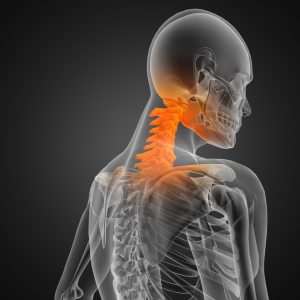By Richie Billing. Last Updated 22nd November 2023. In this guide, we will look at a range of back injury compensation examples in the UK.
Manual handling accidents, slips and falls and accidents involving moving machinery can all cause injuries of this nature. However, back injuries can also occur in car accidents, at public bars, or in council-owned spaces.
A back injury sustained anywhere can be debilitating and may leave you unable to work or do the things you usually do. Our guide will provide you with information so that you’re aware of your rights after an accident of this nature.
Don’t worry – our panel of solicitors can help you to get you the outcome you deserve. For free legal advice:
- Use the “live chat” feature to the bottom-right of this screen
- Use our online contact page
- Call now at 0800 408 7825
Back injury compensation examples guide
Select A Section
- Calculating Back Injury At Work Compensation Examples in the UK
- Compensation For A Back Injury – What Are The Claim Eligibility Criteria?
- How Could A Back Injury At Work Occur?
- How To Manage The Risk Of Back Injuries At Work
- Back Injury Claims – What Evidence Do I Need?
- Can I Claim Compensation For A Back Injury On a No Win No Fee Basis?
- Further Back Injury Compensation Examples UK
Calculating Back Injury At Work Compensation Examples in the UK
You may want more information about the amount of back injury compensation you could receive from a personal injury claim. Remember that you would only be able to claim for a back injury at work if you’re able to prove that your injury was the result of third-party negligence.
For example, your employer may be considered negligence if they supplied you with faulty work equipment which led to you being harmed.
The Judicial College Guidelines can give you a greater idea of your potential general damages compensation. Compensation for general damages relates to the severity of the injury as well as the pain and suffering caused. This can relate to any physical or psychological injuries caused by negligence. This isn’t the only head of loss in a personal injury claim as we will explain below.
The figures are taken from the latest guidelines, published in April 2022. Please remember that these figures only relate to successful claims in England and Wales and that the compensation brackets are not guaranteed for your claim as the amount you receive is dependent on the nature of your specific case and also. Also note that the first entry in this table is an estimate figure and not based on the Judicial College Guidelines.
| Type Of Injury | Compensation Bracket |
|---|---|
| Multiple Serious Injuries Plus Special Damages | Up to £1,000,000+ |
| Back Injury - Severe (i) | £111,150 to £169,450 |
| Back Injury - Severe (ii) | £90,510 to £107,910 |
| Back Injury - Severe (iii) | £47,320 to £85,100 |
| Back Injury - Moderate (i) | £33,880 to £47,320 |
| Back Injury - Moderate (ii) | £15,260 to £33,880 |
| Back Injury - Minor (i) | £9,630 to £15,260 |
Can Compensation For A Back Injury Include Special Damages?
Compensation for a back injury can also include special damages if you have suffered financial harm as a result of your accident at work. This head of claim compensates you for any losses or out-of-pocket expenses incurred from your workplace injury.
For example, if you suffer a broken back, you’ll likely need an extended period of time off work. If your earning capacity is subsequently affected, you could include this loss as part of your special damages claim. You may use the likes of payslips or bank statements to prove a loss of earnings.
There are other types of financial harm that you could include in your back injury claim, such as:
- Care costs resulting from requiring a carer to assist you with daily activities since your back injury has left you at less capacity. Perhaps use an invoice from your carer to prove this cost.
- Travel expenses stemming from travelling to and from hospital appointments regarding your back injury. Keep hold of any receipt of travel, including bus or train tickets, or a receipt of gas.
- Prescription fees arising from paying for medication needed to soothe symptoms of your back injury. Retain all receipts of your prescriptions as evidence of this expense.
Our advisors are available 24/7 to answer your questions about back injuries and claiming against your employer. You can get in touch for free by using our live chat widget.
Compensation For A Back Injury – What Are The Claim Eligibility Criteria?
If you hurt your back at work, an injury claim is only possible if you can prove that your injury was directly caused by your employer breaching their duty of care. Together, this is known as negligence.
Under the Health and Safety at Work etc. Act 1974 (HASAWA), your employer owes you a duty of care. Per this duty of care, they must take reasonably practicable steps to ensure your safety whilst you are in the workplace and completing work-related duties. Should they breach this duty of care, this could cause you to suffer injuries at work, and you might be eligible to make a personal injury claim.
To see if you could be eligible to make a claim for compensation for a back injury, you can get in touch with our advisors.
How Could A Back Injury At Work Occur?
There are various types of accidents that could occur at work that can cause a back injury. Depending on the circumstances, such incidents could lead to an accident at work claim if they occur because of the employer breaching their duty of care.
Potential accidents that may lead to a claim for a back injury at work may include the following:
- A slip, trip or fall – For example, your employer failed to keep the walkway of your warehouse job clear. This causes you to trip over some loose cable wires, and you suffer a back injury as well as a sprained ankle.
- Manual handling injuries – If your employer failed to give you sufficient or any manual handling training, this could cause you to suffer a sprain or strain in your back due to either lifting with poor technique or carrying loads that are too heavy.
- Struck by a moving or falling object – For example, if your employer failed to regularly maintain a forklift at your workplace, this could malfunction while a colleague is using it. This could cause the forklift to strike you, and you could suffer a back injury as well as an arm fracture.
To learn more about your eligibility to claim or if you’re seeking back injury compensation examples in the UK, contact our advisors for free today.
How To Manage The Risk Of Back Injuries At Work
As the regulator for health and safety in British workplaces, the HSE also provides guidance for employers about keeping employees safe. According to the HSE, this is how employers can manage and reduce the risk of work-related back injuries:
- Identify activities that could result in back pain and see if they can be avoided or changed
- Ask employees for their input as they have first-hand knowledge of the work
- Consider how jobs can be made physically easier
- Make sure aids, such as for lifting, are available, maintained, and used
- Encourage employees to report issues early so employers can provide the right help
For example, if you’re an employer in a warehouse with a tall or complicated shelving system, providing aids, such as a forklift and training, will help your employees avoid work-related back injuries.
Protecting Employees And Manual Handling Injury Prevention
Employers could also take specific steps to protect you from manual handling injuries. According to the HSE, employers could avoid hazardous manual handling operations by possibly redesigning the task to avoid moving the items at all. They could also potentially automate or mechanise the process.
If it’s not possible to avoid the task, employers could reduce the risk by:
- Making the load smaller or lighter
- Break up large tasks into smaller loads
- Modify the workplace to reduce twisting movements, the need to lift things from floor level and carrying distances
- Change the work routine to avoid tight deadlines and excessive work rates
- Improve the environment, e.g. better lighting, flooring and more space
- Make sure the correct training is provided
Back Injury Claims – What Evidence Do I Need?
Successful back injury claims will depend on the supporting evidence that claimants can provide. To strengthen your claim, you can collect and gather evidence such as:
- CCTV footage (Or similar recordings) – Of the cause of your injury
- Witnesses – Collect the contact details of witnesses to your cause of injury
- Medical Records – Which can include an expected recovery period which will be important in assessing the correct amount of compensation for your back injury claim
- Pictures – Pictures taken of your injury can act as supporting evidence of the extent of the injury
- Receipts – Maintain receipts and similar financial records, such as invoices, of costs you have incurred due to the injury
Our advisers can help you with information about back injury claims and inform you of how you could successfully claim back injury compensation.
How Long Do I Have To Claim Back Injury Compensation Amounts?
If you are seeking a back injury at work compensation amount, you need to be aware of the time limit in place to start legal proceedings.
The Limitation Act 1980 impl
ements a general three-year time limit from the date of the accident in which a personal injury claim needs to be started. There may be exceptions, however. For example, the limitation period may be suspended under certain circumstances, for example:
- If the injured person is under the age of 18.
- If the injured person lacks the mental capacity to begin their own claim.
In these circumstances, while the time limit is paused, a suitable adult could apply to act as a litigation friend and start the back injury claim on the injured person’s behalf.
However, if no claim is made on behalf of a child by the time they turn 18, they will have 3 years from their 18th birthday to begin their own claim. Similarly, if the person who lacks the mental capacity to claim recovers their capacity, they will have 3 years from this date to begin their own claim, provided one hasn’t already been made for them.
Speak with our advisors for free advice if you have any other questions about the time limits involved when claiming back injury compensation amounts. They could also connect you with an expert back injury lawyer from our panel, provided you have a valid claim.
Can I Claim Compensation For A Back Injury On a No Win No Fee Basis?
Now that you’ve learned more about making a back injury at work claim, you might be curious about working with a solicitor. Claiming with the help of legal professionals can come with many benefits; for example, a solicitor can help you gather evidence to support your claim. They can also offer more information on back injury compensation amounts that is specifically tailored to your claim.
Our panel of solicitors operate on a No Win No Fee basis, and do so by offering their clients Conditional Fee Agreements (CFAs). Under a CFA, you aren’t required to pay an upfront fee in order for your solicitor to start working on your claim. Similarly, they won’t take payment for their continued services, nor will they take a fee for their work if your claim fails.
However, if your back injury at work claim succeeds, then your solicitor will take a small success fee. This is taken directly from your compensation as a percentage with a legal cap. The legal cap is in place to help make sure that the larger share of what you receive stays with you.
To find out if you could be eligible to work with a solicitor from our panel, contact our team of advisors today. They can evaluate your claim for free, and if they find that your claim could be valid, they may connect you with a solicitor from our panel. To get started:
- Call us on 0800 408 7825
- Use the live chat feature
- Contact us online
Further Back Injury At Work Compensation Examples UK
- Car accident case study
- Claiming for an accident at work.
- Back injury at work compensation guide
- GOV.UK information on Statutory Sick Pay
- HSE information on manual handling
- NHS guidance on back pain
- Further information on No Win No Fee Agreements
We also have some other guides you may find useful:
- Public accident claims hot spots
- Can you be sacked for having an accident at work?
- Council slip and trip accidents
- Public transport accidents
- How to make a public liability claim
- Making a claim against the council
Thank you for reading our guide, where we’ve provided back injury compensation examples in the UK.




